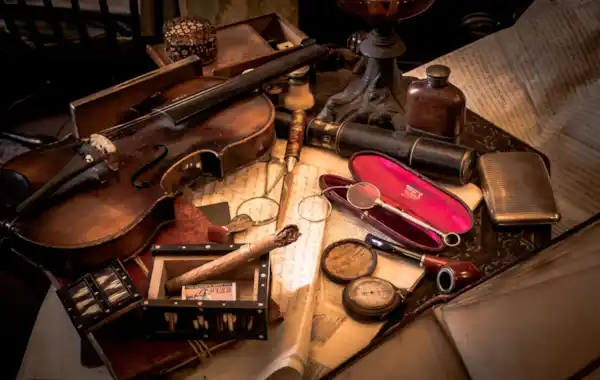On your mission to learn about your family’s past, you may well feel like a bit of a detective investigating a case – and indeed you are! Read on for Helen Tovey’s handy hints to help you become the best family history super-sleuth you can be!
If you want to discover your family history then you’ll need to get all sorts of skills under your belt, and employ all sorts of strategies to track down those vital bits of evidence you need. On your mission to learn about your family’s past, you may well feel like a bit of a detective investigating a case – and indeed you are! Read on for Helen Tovey’s handy hints to help you become the best family history super-sleuth you can be!
1 The notebook
Just as a policeman traditionally records all his findings in his little black book, so it’s vital that you make sure you record all those clues you find:
The names and dates you might hear
The whereabouts of a family heirloom
The memories and stories
2 The interview
While tracing back the clues of the past, be sure to speak to your relations. With luck you will be amazed (and delighted) at the stories they might recall about previous generations, the clues they can share, and the insights they can give you about your family in times gone by.
3 Witnesses
Just as a policeman doesn’t take one witness’s account as the indisputable truth, so must you seek to find corroborating evidence. If possible speak to several family members about the same events from the past – each will have a different take on the past, and each will shed new light both on what happened in the past and how different people felt about it.
4 The evidence
With family history you’ll soon find yourself accumulating all sorts of papers and documents. Once fellow family members realise that you’re into family history, they may step forward with items you might like to look at or even store for them in your (growing) family archive. As with all evidence on a case, it’s provenance is very important. Be sure to keep a note of things such as:
Who an item belonged to and how it came into their possession?
Who are the people shown in a family photo and what was the occasion?
And lastly, do take scans of family papers and photos of family treasures – then you can share them with family members, and also provide a means of preserving the memories, should the worst happen to your family archive (think fire, flood, etc).
5 Write it all up
With family history it’s easy to feel that you don’t know enough to start writing down your family story, that you don’t have a sense of ‘case closed’. However, do be sure to write down your research, making a note of what you’ve searched for, what you found and what you didn’t found. Include your conclusions so far, and what you would like to search for the next time you sit down to investigate that family tree of yours a little bit further.








.jpg)